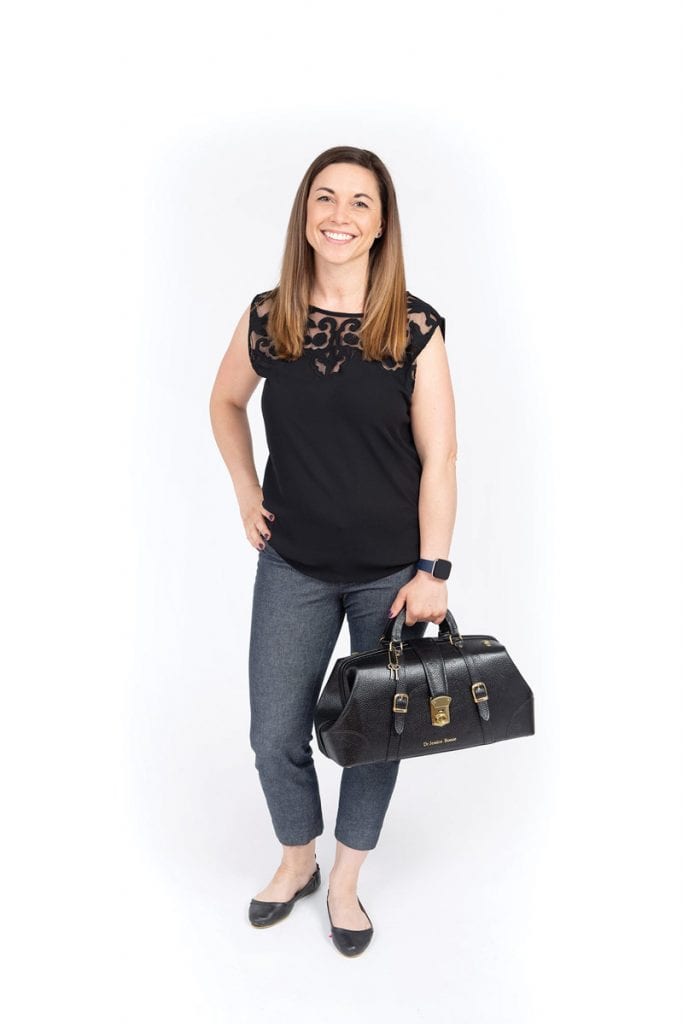
Dr. Jessica Bossie
Primary-care Physician, Health Services for the Homeless; Age 34
 It’s called ‘street outreach.’
It’s called ‘street outreach.’
That’s what Dr. Jessica Bossie calls the work she does on Thursday afternoons and Fridays, and it’s aptly named.
That’s because she is, quite literally, on the streets — and also under bridges, in homeless camps, and in other locations, bringing needed healthcare directly to the homeless population in Western Mass.
“Sometimes it’s Main Street in Northampton or some of the drags in Springfield — we know where our patients panhandle; we know where they go,” she explained. “If we need to find them for something serious, we’ll go find them — and we do.”
Street outreach is part of an extremely broad set of responsibilities for Bossie, the only primary-care physician working within a Springfield-based but regionally focused program called Health Services for the Homeless.
Others include seeing patients at both the Worthington Street homeless shelter in Springfield on Mondays and Wednesdays, and the homeless shelter in Northampton on Tuesdays and Thursdays; acting as a repository of information for a transient population that crosses many city and county lines; directing a harm-reduction program for the homeless patients who suffer from chronic alcohol abuse; and even overseeing and operating all aspects of an 800-square-foot community vegetable garden in Barre.
Her work is difficult to describe in much detail in this space. Suffice it to say it is 24/7 and involves caring for and advocating for the homeless population in Hampden, Hampshire, and Franklin counties, work that involves both treatment and prevention. This work resonated with the judges for this year’s 40 Under Forty program, as Bossie was the highest scorer among nearly 200 nominees.
A graduate of Boston University School of Medicine and the mother of three young girls, Bossie said she always intended to serve underserved populations, and was specifically interested in substance-abuse treatment. She had some direct exposure to Boston’s highly acclaimed healthcare program for the homeless, and has brought many of its best practices to this region.
When asked what she found most rewarding about her work, she said it’s the “human component,” the relationships she’s made with her patients.
“It’s wonderful to be able to help them in ways they’ve been wanting but haven’t found a way to get before,” she said. “Even after they move on, some of my patients travel hours just to come back and see me. It’s really flattering, and we develop these really amazing, really strong relationships.”
—George O’Brien





